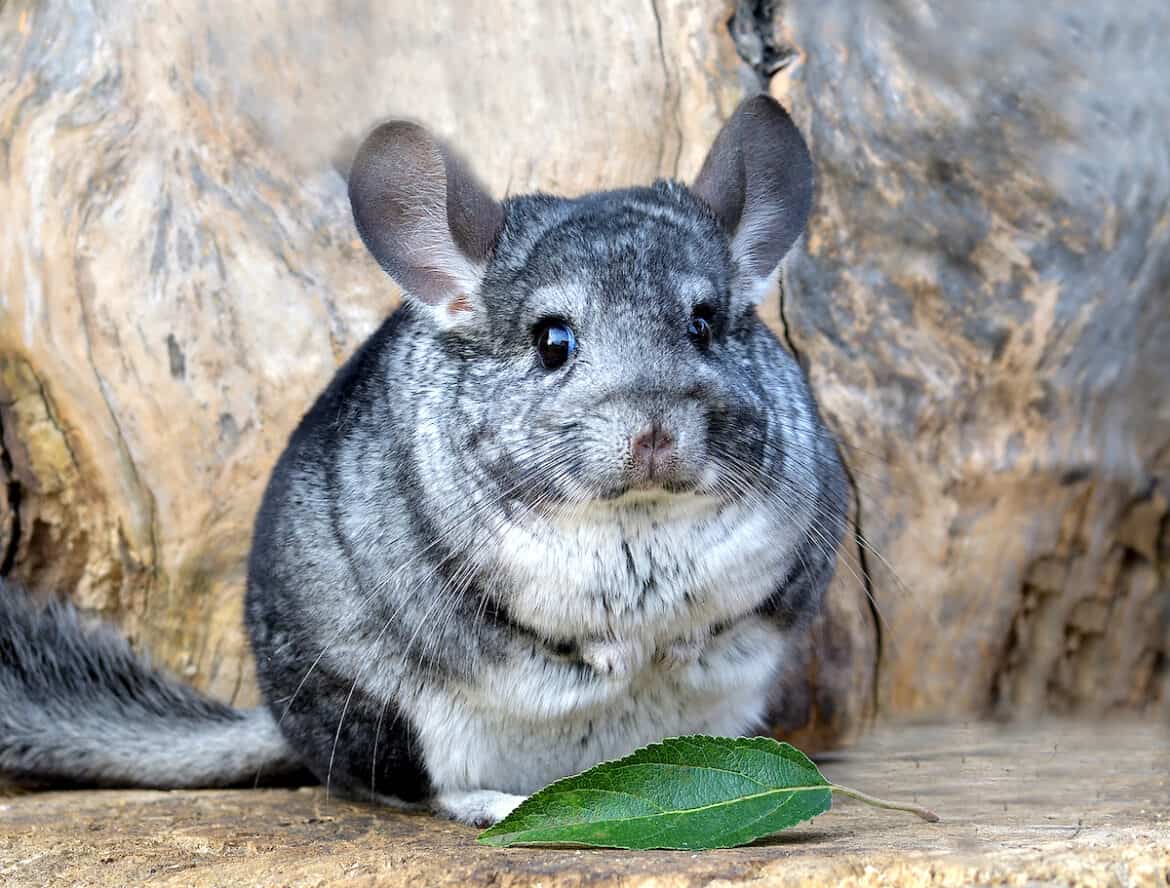Small species such as chinchillas and guinea pigs can make wonderful pets. They are generally easy to keep and it can seem at first glance that their care requirements are very similar as well.
In some respects, this is true. However, when it comes to nutritional needs, you may be surprised to hear that these two species have different requirements to keep them happy and healthy.
So, can chinchillas eat guinea pig food? No, chinchillas and guinea pigs have different dietary needs. However, the types of foods they eat are very similar, which can often cause confusion. Pellets, in particular, must be species-specific and therefore Chinchillas should not eat pellets that have been designed for guinea pig consumption.
We often hear of Chinchilla owners buying generic small animal feeds for their furry friends such as feeds that have been designed for guinea pigs and other small rodents. Since most small animal feeds look very similar, we can see why there may be confusion about what is and isn’t ok to feed chinchillas.
The Nutritional Needs of a Chinchilla
The nutritional needs of a chinchilla and a guinea pig are very different even though the type of foods they eat are similar. Chinchilla pellets, in particular, are different from those made for guinea pig consumption.
Chinchillas have some very specific nutritional needs that are often not found in foods that have been designed for guinea pigs. Chinchillas require large amounts of hay and this would be considered the main part of their diet. A chinchilla’s digestive system needs large quantities of hay and grass to stay healthy.
Pellets are fine for chinchillas to consume in small quantities as long as the pellets given are formulated specifically for this species.
Chinchilla pellets tend to be high in fiber, carbohydrates, vitamins, and minerals which provides them with all the right nutrition to keep them happy and healthy. Chinchilla pellets often contain green vegetables too, which are good for their digestive system.
Always ensure that your chinchilla has a readily available source of water at all times as well, since they are prone to becoming dehydrated easily.
The Nutritional Needs of a Guinea Pig
Guinea pigs require a high level of hay in their diet just like chinchillas do, however, the types of pellets you feed should be species-specific. Pellets marketed for chinchillas will likely wreak havoc on your guinea pig’s digestive system. Too many vegetables and fruits can also be a problem for their delicate stomachs.
Guinea pigs require a very high level of vitamin C in their diet and therefore pellets and other feeds that have been formulated for guinea pigs are often enriched with large quantities of this vitamin. Guinea pigs are unable to produce enough vitamin C naturally and therefore supplementation is a necessity.
Guinea pig food is also generally formulated with less calcium than that of Chinchilla feed. This will increase the lifetime and stability of guinea pigs and ensure they stay healthy and happy.
Chinchilla Vs Guinea Pig Food Requirements – Comparison
Just to make things as easy as possible, here is a summary and comparison of each of the different food requirements for guinea pigs and chinchillas.
Hay and Grass
Chinchillas and Guinea Pigs are very similar in relation to their need for large amounts of roughage in the diet. It is always recommended that hay and grass be the bulk of both species’ diets. Both need hay in large quantities for healthy digestive function.
Timothy hay is one of the most common types fed to both guinea pigs and chinchillas and alfalfa is another popular type of hay that is safe for both species to consume daily.
Pellets
Guinea pigs and chinchillas may have the same need when it comes to roughage, but pellet feeds are another story. Their nutritional requirements are very different.
Guinea pigs require a feed that is high in vitamin C since their body is unable to produce this naturally. You will also find guinea pig pellets contain lower levels of calcium.
Chinchilla pellets must contain high levels of fiber, carbohydrates, and protein. Vegetables are often included in their formula to provide all the essential vitamins and minerals required. Too many vegetables can many issues with a guinea pig’s delicate stomach.
Fruits and Vegetables
It is safe for both guinea pigs and chinchillas to consume fruits and vegetables, however, it is also best to provide these in moderation. Chinchillas can tolerate these types of foods much better than guinea pigs, which would be considered to have a much more delicate digestive systems.
Water Consumption
Both chinchillas and guinea pigs require a fresh, constant supply of water available to prevent them from becoming dehydrated from all the roughage in their diet. Guinea pigs tend to drink quite large quantities of water, whereas Chinchillas need a little more encouragement in this area.
Up Next: Why Do Chinchillas Bathe in Dust?
